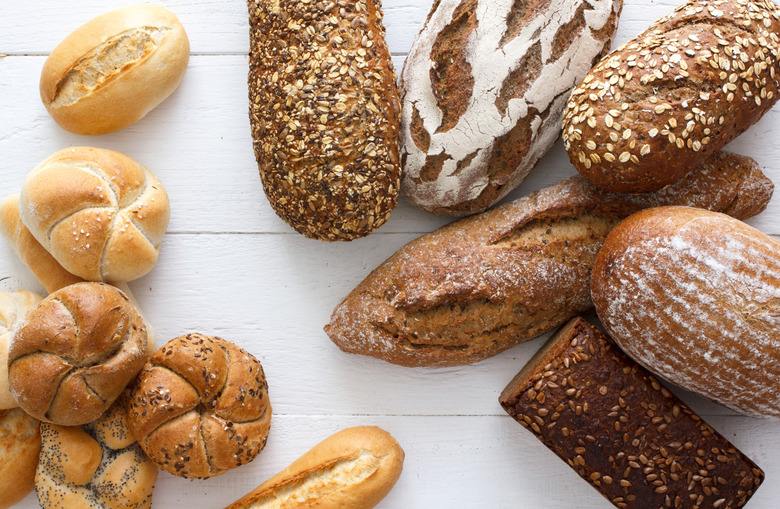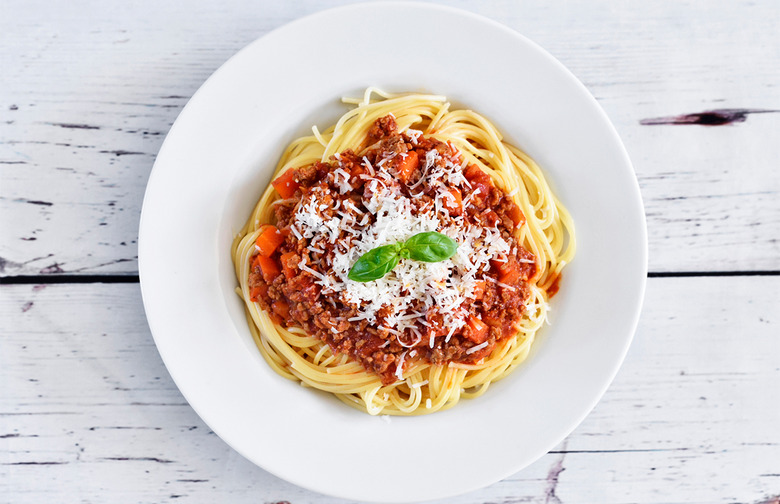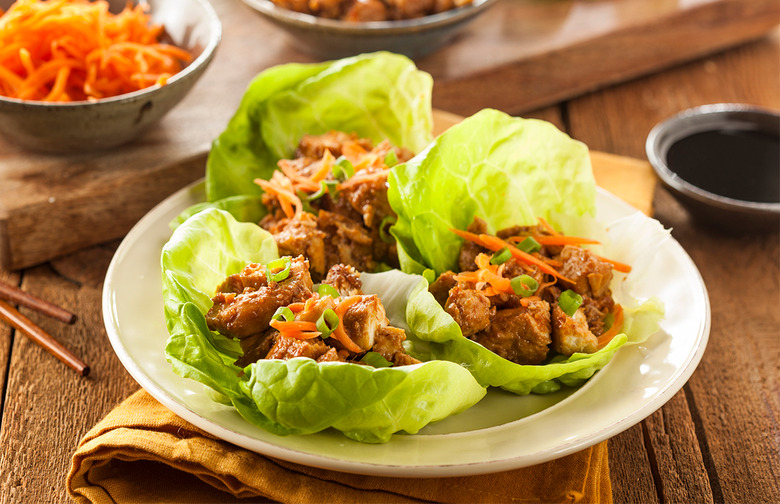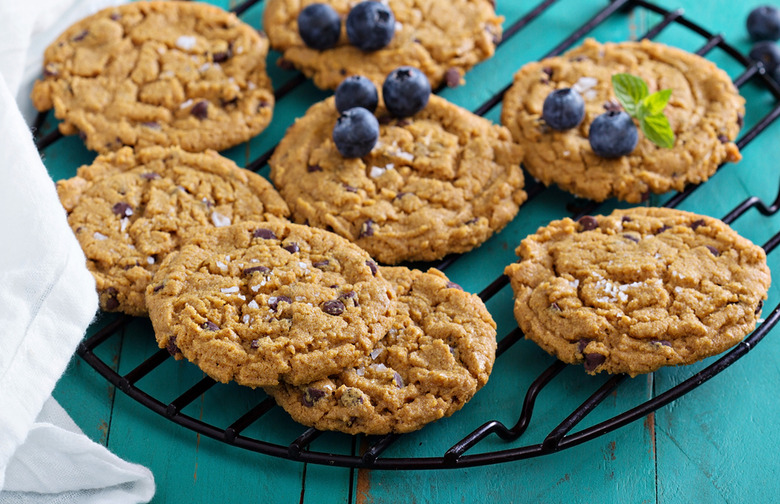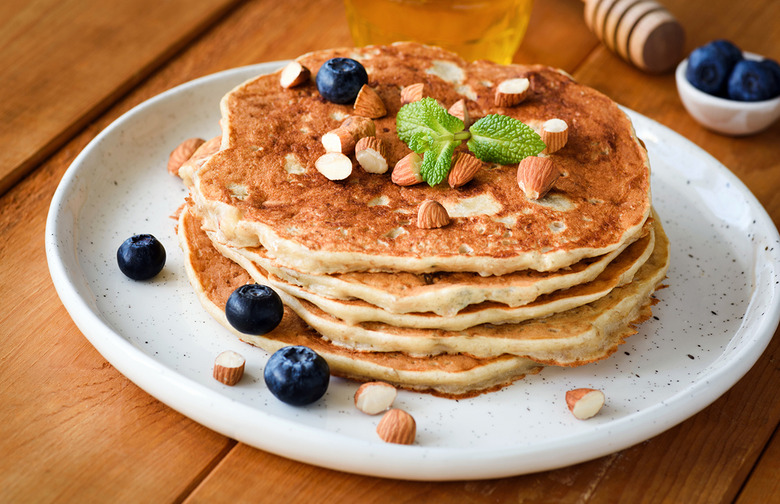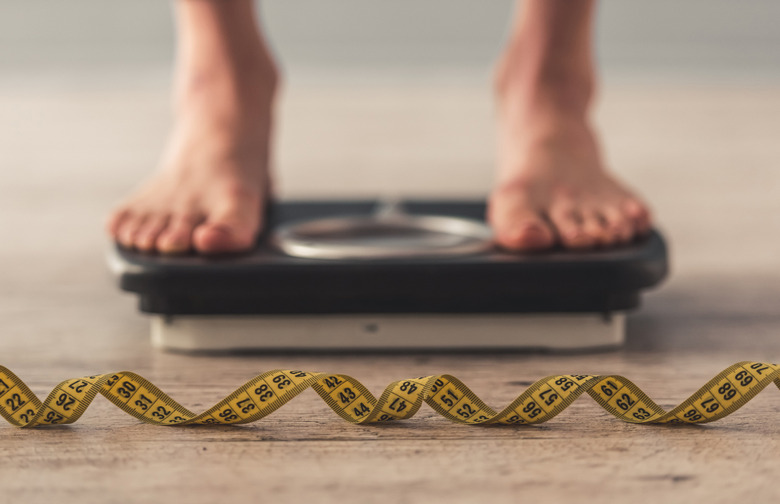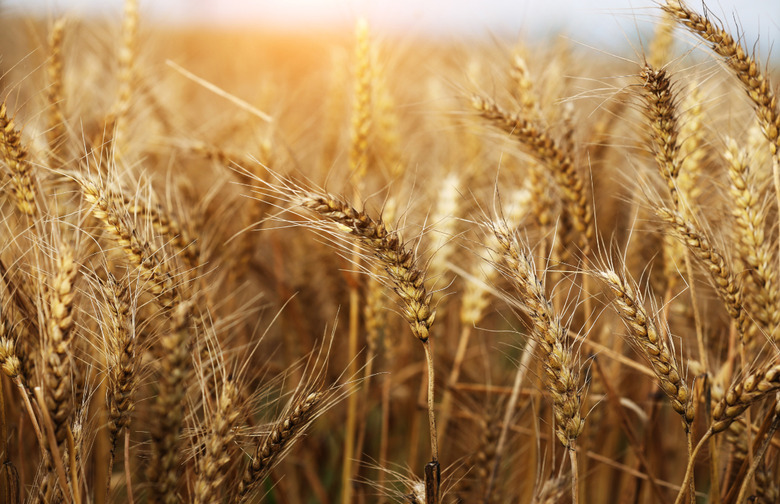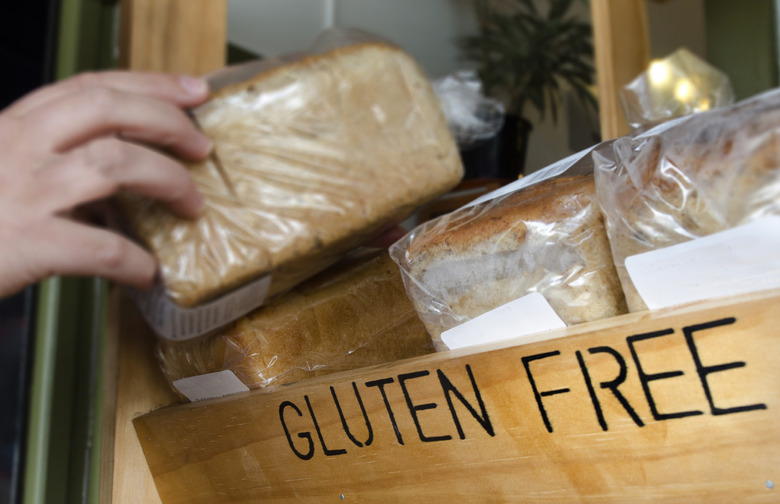15 Myths About Gluten To Stop Believing
Lately, the bread aisle has gotten a bit more confusing to navigate. You used to just have to choose between white and whole wheat. Now you have to decide whether gluten is right for you, too?
Some of the more jarring myths about gluten have been steering consumers away from wheat and toward stale substitutes. Does gluten mess up your stomach? Is gluten bad for you? Some who advocate for trendy diets such as Whole30 and paleo say that eliminating gluten and limiting carbs is best for your health. But that might not necessarily be true.
Before learning more about whether going gluten-free is best for you, first it's important to understand what gluten even is. Gluten is a naturally-occurring protein found mainly in grains and wheat products. Biologically, gluten helps the wheat seed to store some of the nutrients it needs to grow into a plant; from a culinary perspective, gluten often acts as a sort of "glue" to hold foods together or to make them stretchy. (The word gluten literally means "glue" in Latin.) It's incredibly useful for cooks, so there are quite a few foods you wouldn't expect that contain gluten. But that may not be a bad thing! Here are some of the myths about gluten you should stop believing.
Eliminating gluten will heal your gut
With so much misinformation buzzing around about gut health these days, it's hard to separate myth from reality. Due in part to misconceptions about gluten intolerances and in part to connections made between sugar (which feeds the "bad" bacteria in your gut) and the fact that foods with gluten also tend to be high in carbohydrates, many have started to assume that gluten is bad for your digestion. There are lots of sugary foods that don't have gluten, though. For instance, lots of sugary candies are gluten-free. So eliminating gluten won't eradicate all the imbalances that may or may not be happening due to sugar. Additionally, there is no decisive evidence that suggests that people without celiac disease, a gluten allergy, or gluten intolerance actually improve their digestion when they cut gluten from their diets — so if you don't have an allergy or intolerance, don't bother. Eliminating gluten will probably mean you ingest a lot less fiber in your diet, though. Many gluten-free products are made without the crucial nutrient — and with added sugars and salt. Relying on processed gluten-free foods could actually cause more problems with your digestion in the long run.
Eliminating gluten will make you more energized
Anti-gluten campaigners will tell you that once they eliminated gluten, they felt exponentially more energized. This claim is derived from an assumption that gluten takes more energy for your body to digest, causing you to feel sluggish. But this is a myth — according to the University of Wisconsin's School of Public Health, there are zero studies in existence that support this claim. In fact, many foods with gluten, such as whole-wheat bread, are quicker for your body to digest than most animal proteins and healthy fats.
Everyone can benefit from going gluten-free
Assuming that everyone can benefit from going gluten-free is like assuming everyone can benefit from avoiding peanut butter. Just because some people have an allergy or intolerance doesn't mean that everyone needs to stop eating the food. No harmful side effects of gluten have been discovered for the average person — the only negative effects occur for people with an allergy or intolerance. Recent studies show that people often misdiagnose themselves with allergies or intolerances. Consult your doctor before making the assumption that you have one.
Foods with gluten are bad for you
Gluten, in and of itself, is not bad for the vast majority of people. Gluten is simply a protein — it exists naturally in many plants people tend to eat. You may think that eliminating gluten will help to reduce the amount of unhealthy food you eat, since gluten is contained in "unhealthy" foods such as pasta and white bread. However, foods with gluten have important nutrients for your overall health. Bread, for example, has folate, fiber, calcium, potassium, iron, and more. By eliminating the foods, you're also eliminating the nutrients they provide. And cutting out all or most carbohydrates from your diet is also somewhat ill-advised. People with celiac disease need to be careful to make sure they are getting properly nourished without these popular foods.
Gluten causes cancer
While other common foods have been linked to cancer in one or more studies, gluten has not. The only exception is for people with celiac disease — which makes a lot of sense. If you continually eat something you're allergic to, it's logical that your body won't react well. The American Institute for Cancer Research actually warns people against cutting out gluten to try to avoid cancer. This is because foods with gluten, such as whole grains, contain vitamins and minerals that can bolster your protection against cancer as you age. Some of the foods that can help prevent cancer actually contain gluten.
Gluten allergies are really common
It might seem like everyone and their mother is allergic to gluten, but many of these "diagnoses" are not medically tested or accurate. Allergies are often over-diagnosed, especially among those who self-diagnose. In reality, only 1 percent of people have celiac disease in the United States, many of whom were diagnosed at a young age. If a person has been eating gluten for their entire lives and "discovers" a gluten allergy later, it's likely they're not allergic. Allergies have uncomfortable, and sometimes fatal, side effects that they likely would have noticed. Adult-onset allergies do exist — but the symptoms of those are also quite blatant.
Gluten-free diets are low-carb
Yes, foods with gluten often have carbs. But that doesn't mean all gluten-free foods are low-carb! Lots of carbohydrate-rich foods are included in a gluten-free diet. Rice, for example, is gluten-free. Sugar. Fruit. Potatoes. And that's just the tip of the iceberg.
Celiac disease isn’t that serious
Celiac disease is absolutely serious! For some people, eating gluten can be deadly. Celiac disease is an immune disease wherein the person affected has an immune response to the gluten protein that damages the small intestine. It affects around 1 in 100 people worldwide, ranging in severity depending on the person. Undiagnosed, celiac disease can increase the likelihood of other potentially deadly health complications.
Gluten-free foods are always expensive
The gluten-free imposter versions of normally glutenous foods are usually pretty expensive. A gluten-free loaf of bread is going to rack up a much larger grocery budget than just buying the wheat-filled kind. However, not all gluten-free foods are labeled and advertised as gluten-free. Potatoes, rice, fruit, meat, and vegetables are all examples of gluten-free foods that don't require a special label. Anything made normally with gluten-free ingredients such as cheese, milk, nuts, rice-based cereals, and corn tortillas will not always be that pricey.
Gluten-free foods are always healthier
Don't let this food label fool you. Just because a food is marked gluten-free doesn't mean it's healthier than the real thing. In fact, one study recently showed that gluten-free versions of foods are often less healthy and more expensive. A gluten-free cereal, for example, might be more heavily processed and made with more added sugar than a cereal made with gluten. The opposite could also be true — the point is that the healthiness of the food does not depend on whether it contains gluten.
Going gluten-free will help you lose weight
In a recent study, nearly a third of women believed that doctors prescribe gluten-free diets for weight loss. This is (hopefully) not true! If doctors were prescribing them, they'd be a little misguided. There is zero evidence to suggest that eliminating gluten, without making other diet changes, results in weight loss.
Human weren’t meant to digest gluten
Sure, cavemen weren't eating fettucine Alfredo — but that doesn't mean our bodies can't handle the protein. In fact, some research shows that humans were eating bread, gluten and all, up to 14,400 years ago. There is no evidence that our digestive systems struggle to process the gluten compound (again, unless you are allergic to it).
Wheat has more gluten today than it did in the past
Wheat has undergone some minor changes over the years, and farmers have always tried to improve and modify their crops over time. However, the gluten content in modern wheat is probably quite similar overall to wheat from long ago. A study analyzed wheat samples and found no evidence that the gluten content is any greater than before.
You can diagnose yourself with gluten intolerance
Celiac disease is characterized by an extreme reaction to gluten wherein eating gluten can seriously damage the small intestine due to an immune response. People with celiac disease are typically diagnosed by a doctor. Some people who experience a less severe reaction, however, try to diagnose themselves, either with an allergy or intolerance. Both of these conditions should be diagnosed only by a medical doctor. Research shows that many people who believe they have an allergy or intolerance to a food actually do not. Before jumping to conclusions, you might want to consider other factors that could be making you feel ill. Stress about food, nutrient deficiencies, or other dietary abnormalities could cause indigestion.
‘Wheat-free’ and ‘gluten-free’ labels mean the same thing
If a product is marked "wheat-free," it may contain gluten. Barley and rye are two wheat-free foods that do contain gluten. While all gluten-free foods are free of wheat, not all wheat-free foods are free of gluten. "Wheat-free" is ambiguous — as are these other misleading food labels.
More From The Daily Meal:
Starbucks Secret Menu Items and How to Order Them Like a Pro
18 Things You Should Never Buy at Trader Joe's
The Best Food and Drink in Every State
21 Insanely Easy Instant Pot Breakfast Recipes
